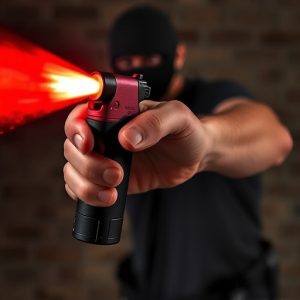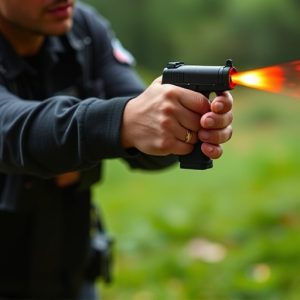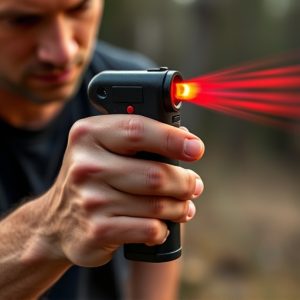Maximizing Pepper Spray Effectiveness Across Diverse Climates
Pepper spray effectiveness varies greatly across climates, with warmer, humid environments diluting…….
Pepper spray effectiveness varies greatly across climates, with warmer, humid environments diluting its potency and colder climates increasing viscosity, impacting accuracy. To ensure optimal self-defense, consumers should buy pepper sprays labeled "climate-resistant" or "formulated for all weather conditions," addressing humidity and cold temperature issues. Understanding these environmental impacts is crucial for personal safety when using pepper spray in diverse weather conditions.
“Unleashing the power of self-defense in an unpredictable world, civilian defense pepper spray stands as a game-changer. This article delves into the multifaceted aspect of pepper spray effectiveness, exploring how this powerful tool performs across diverse climates and offering essential safety considerations.
From the lab to real-world scenarios, we analyze its impact on various environments, ensuring you’re equipped with knowledge to make informed decisions. Understanding the nuances of pepper spray in different climates is crucial for effective self-protection.”
- Understanding Pepper Spray Effectiveness
- Pepper Spray in Different Climates: Challenges and Solutions
- Safety Considerations for Civilian Defense Pepper Spray Use
Understanding Pepper Spray Effectiveness
Pepper spray effectiveness isn’t uniform across all scenarios, particularly when considering different climates. In warmer, more humid environments, pepper spray’s potency can diminish as heat and moisture impact its chemical composition. Conversely, in colder climates, the spray’s viscosity may increase, potentially affecting accuracy and range of application. These environmental factors underscore the importance of choosing a civilian defense pepper spray designed for versatility and adaptability to diverse conditions.
Understanding how pepper spray interacts with different temperatures and humidity levels allows users to make informed decisions when selecting their self-defense tool. Look for products labeled as “climate-resistant” or “formulated for all weather conditions,” ensuring maximum effectiveness regardless of the environment in which it’s used.
Pepper Spray in Different Climates: Challenges and Solutions
Pepper spray, a popular self-defense tool, faces unique challenges in various climates, affecting its effectiveness and usability. In humid environments, the spray’s concentration can diminish faster due to higher moisture levels, reducing its impact. This is particularly relevant for coastal areas or regions with high rainfall, where pepper spray may not provide the same level of protection as in drier climates.
To overcome these challenges, manufacturers have developed climate-resistant pepper spray formulas and packaging designs. Water-repellent canisters and advanced formulations that remain potent in humid conditions are now available. Additionally, using pepper spray in cold climates requires consideration. Freezing temperatures can cause the spray to freeze, rendering it useless until thawed. Thus, users in colder regions should opt for products designed to maintain effectiveness in subzero temperatures.
Safety Considerations for Civilian Defense Pepper Spray Use
When considering civilian defense pepper spray as a personal safety tool, it’s crucial to understand its effectiveness in different climates and environments. Pepper spray is designed to disrupt an attacker’s vision, breathing, and movement by causing temporary blindness, coughing, and pain. However, factors like temperature, humidity, and wind can impact its performance. In colder climates, pepper spray may dry out faster than intended, potentially reducing its potency. Conversely, high humidity can affect the spray’s dispersion, making it less effective in close-quarters situations.
To maximize safety and effectiveness, users should store their pepper spray according to manufacturer recommendations, ensuring it remains in a cool, dry place. Additionally, familiarizing oneself with local laws and regulations regarding pepper spray ownership and use is essential. Practice using the spray in various weather conditions, if possible, to develop proficiency in its deployment. Always remember that proper training and responsible handling are key to effective self-defense with civilian defense pepper spray.
In conclusion, pepper spray has proven itself as a potent civilian defense tool, offering effective protection against potential threats. Understanding its effectiveness and learning how to choose the right product for different climates are key to ensuring its safety and success in various environments. By prioritizing these considerations, individuals can make informed decisions when it comes to their personal security.


